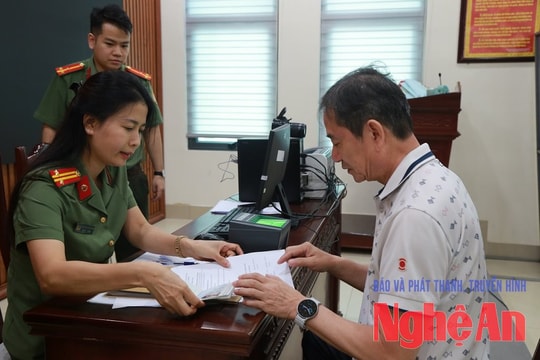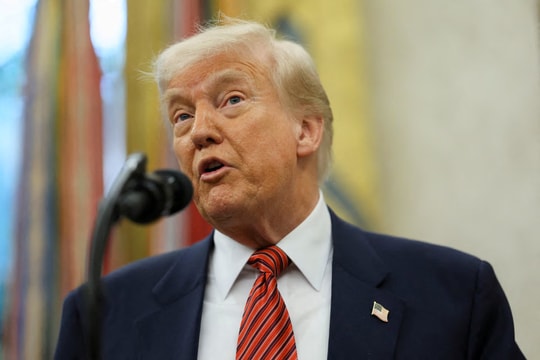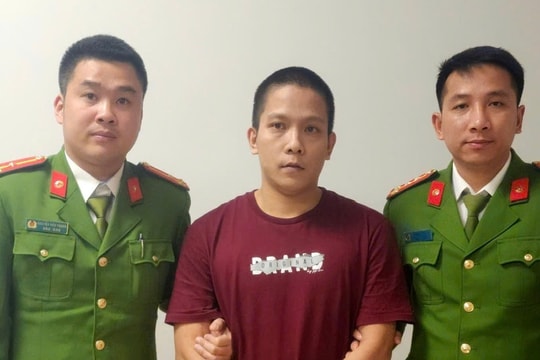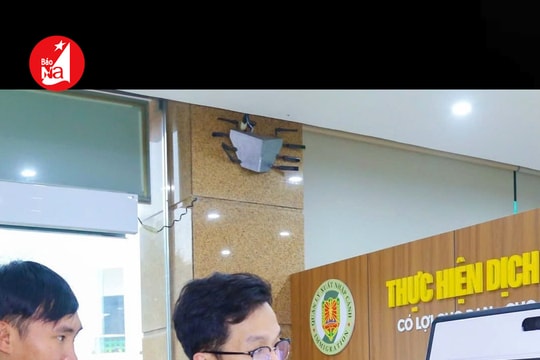Outstanding international events of the past week
(Baonghean.vn) - Russian President Putin suddenly dismissed 16 high-ranking officials; Europe sought solutions to prevent migrants; the US will add more sanctions against Iran; the US was 'hot' because of the immigration ban;... were notable international events last week.
1. Russian President Putin suddenly dismissed 16 high-ranking officials
| Russian President Vladimir Putin. |
On February 2, Russian President Vladimir Putin suddenly dismissed 16 senior officials from the Ministry of Emergency Situations, the Ministry of Internal Affairs and the Russian National Research Committee.
Among the 16 officials who lost their positions, two generals were dismissed from the military. In addition, President Putin appointed two new leadership positions in the Ministry of Emergency Situations, including Mr. Vladlen Aksionov, Deputy Head of the Fire Department, and Mr. Pavel Barshev, Director of the National Defense Academy.
Mr. Putin also approved Mr. Oleg Kamshilov as Prosecutor General of the Crimean peninsula, replacing Ms. Natalia Paklonskaya, who was elected to the Russian State Duma in September last year.
The Kremlin statement did not give details about the reasons for these personnel changes.
This is the latest personnel reshuffle carried out by President Putin. Previously, Mr. Putin had repeatedly fired a series of high-ranking government officials because they did not complete their tasks.
2. Europe seeks solutions to stop migrants
| Refugees cry on the beach after arriving in Europe (Photo: CNN). |
On February 3, the European Union (EU) Summit opened in Malta in the context that the region is facing many challenges that threaten the existence of the nearly 60-year-old institution.
This is the latest in a series of emergency conferences convened since Britain decided to leave the EU (Brexit) last June.
Speaking to the press, President of the European Council Donald Tusk stressed that the main purpose of the conference is to prevent illegal migration from Libya to Europe. The continent will promote the implementation of additional concrete measures to deal more effectively with human trafficking networks. According to the draft, the EU will prioritize training and equipping the Libyan Coast Guard.
In addition, the EU also proposed aid money for Libya as well as other African countries to block borders, preventing the flow of migrants trying to find their way to Europe.
3. The US will add more sanctions on Iran
| US-Iran relations became tense after Iran tested a ballistic missile on January 30, 2017. |
The White House will impose new sanctions on Iranian institutions, according to information posted on the CNN website today, February 3.
According to CNN, the additional sanctions imposed by the US are to condemn the ballistic missile test that Iran conducted on January 30.
The new sanctions order, expected to be signed by US President Donald Trump today, could target dozens of Iranian individuals, companies and government agencies. The Obama administration previously took similar action after ballistic missile tests by the Middle Eastern country.
In a letter to President Donald Trump on February 2, a group of Republican and Democratic lawmakers called for increased sanctions on Iran. “Iran’s leaders must reduce their destabilizing activities, from funding terrorist groups to repeated ballistic missile tests. Full enforcement of existing sanctions and additional sanctions on Iran’s ballistic missile program are necessary,” the letter said.
Tensions between the US and Iran have escalated since the ballistic missile test on January 30. After Iran's missile test, US National Security Advisor Michael Flynn called it a provocative act, contrary to the UN Security Council resolution.
Meanwhile, Iran asserted that testing ballistic missiles was a legitimate defensive move and warned the US not to strain relations between the two countries.
4. The British House of Commons paves the way for Prime Minister Theresa May to trigger the process of leaving the EU
According to AP, on February 2, with 498 votes in favor and 114 votes against, MPs in the British House of Commons unanimously approved the first phase of a bill, paving the way for Prime Minister Theresa May to activate Article 50 of the Lisbon Treaty for the UK to leave the European Union (EU), also known as Brexit.
The bill will then be sent to the House of Lords for discussion from February 20 and could be officially approved on March 7. Prime Minister T. May is under pressure to get quick approval from the British Parliament because she has committed to European leaders to start the 2-year Brexit negotiation process before the end of March.
Previously, London also tried to activate this provision without going through Parliament. However, the British Supreme Court later ruled that Mrs. T. May's Government must receive Parliament's approval. The UK's EU exit negotiations are expected to last about 2 years and are predicted to be one of the most difficult and complicated negotiations in the history of the EU.
5. Mr. Rex Tillerson officially became the new US Secretary of State
| Mr. Rex Tillerson speaks at the inauguration ceremony. |
On February 1, Mr. Rex Tillerson, former leader of the oil and gas corporation ExxonMobil, officially became the new US Secretary of State.
The appointment of Mr. Tillerson has been confirmed by the US Senate. He passed the Senate vote with a narrow margin: 56 votes in favor and 43 votes against. The 56 people who voted in favor included all Republican senators and 4 members of the Democratic Party.
Mr. Tillerson, 64, worked at Exxon Mobil for 40 years. He stepped down as Chairman and CEO of the corporation in 2016.
Mr. Tillerson took office as Secretary of State amid many difficulties when about 1,000 US diplomatic staff had just signed a petition protesting President Donald Trump's controversial immigration ban.
Republican Party members and supporters of Mr. Tillerson believe he will do well as US Secretary of State thanks to his extensive experience in running a large corporation operating across continents around the world.
Meanwhile, some other Senators expressed concerns about the new Secretary of State's close relationship with Russia as he has a long history of working in the oil and gas sector.
6. America is "hot" because of the immigration ban decree
| Protesters protest President D. Trump's decree at Chicago Airport, Illinois, USA. |
Less than half a month since taking office, US President Donald Trump has continuously introduced many controversial policies.
Among them, the decree banning entry of immigrants from 7 countries with a majority Muslim population, including: Syria, Sudan, Somalia, Iraq, Iran, Libya and Yemen, is becoming the focus. Immediately after being announced, the decision sparked a wave of protests from within the US and many other countries.
The order requires a 120-day suspension of refugees entering the United States, an indefinite ban on Syrian refugees entering the United States, and a 90-day ban on citizens from Iran, Iraq, Libya, Somalia, Sudan, Syria, and Yemen, including those with "green cards," which are long-term resident cards in the country. The White House boss said these are new screening measures to prevent radical Islamic terrorists from entering the United States, and visas will be issued again as soon as "the strictest security policies" are implemented.
However, the decision of the head of the country did not receive the approval of many Americans. Thousands of protesters gathered outside the White House carrying banners and chanting slogans against discrimination against immigrants.
In New York City, a symbol of freedom and immigration, thousands gathered in Battery Park to protest the new president's order. Protests also took place in many other cities such as Atlanta, Boston, Chicago, Los Angeles, Philadelphia and Seattle.
Despite his own arguments, the decision of the 45th President of the United States is facing many disagreements. In any case, a tense atmosphere at home and abroad is not a favorable sign for a leader in his first days in power.
7. North Korea removes important advisor to leader Kim Jong Un
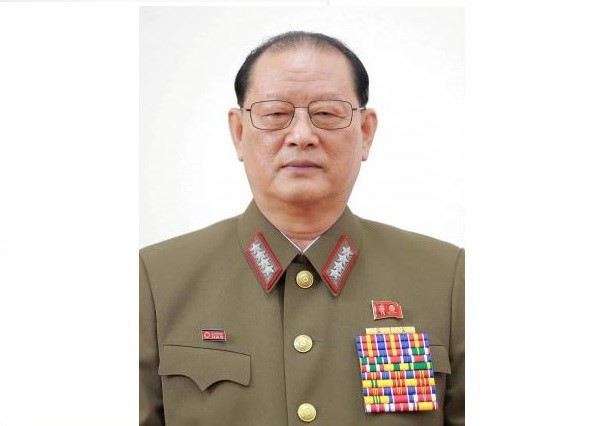 |
| A photo of Mr. Kim Won Hong released by KCNA on June 30, 2016. (Source: Reuters) |
According to Reuters/Kyodo, on February 3, South Korean Unification Ministry spokesman Jeong Joon-hee said North Korea had dismissed its Minister of People's Security, Mr. Kim Won Hong - considered an important advisor to North Korean leader Kim Jong Un.
According to the above source, Mr. Kim Won Hong was removed from office in mid-January 2017 due to charges of corruption, abuse of power, and human rights violations.
On the same day, Yonhap news agency confirmed that Mr. Kim Won Hong had been fired after an investigation and said that, in addition to being fired, Mr. Kim, who was a 4-star General, had been demoted to 2-star General.
The Ministry of People's Security of North Korea is responsible for monitoring civilian activities, counterintelligence, and punishing those who pose a threat to the state.
Mr. Kim emerged as a powerful figure in North Korea after being appointed as head of the agency in 2012, leading to the execution of Mr. Jang Song Thaek, uncle of North Korean leader Kim Jong Un.
8. Mr. Ban Ki-moon announced that he will not run for President of South Korea.
| Mr. Ban Ki-moon speaks at a press conference in Seoul, South Korea on January 31 (local time). (Photo: Reuters) |
Former UN Secretary General Ban Ki-moon - considered one of the top candidates for the South Korean presidency - announced that he will not join the race for the most powerful seat in the Blue House.
At a press conference held at the Parliament building, right after a meeting with Conservative Party leaders, Mr. Ban Ki-moon said he felt very disappointed by the selfishness of some politicians and about rumors surrounding him and his relatives receiving bribes.
“All those false rumors have ruined my political reform plans and left many negative impacts on my family, myself and the reputation of the United Nations - where I have devoted myself for the past 10 years,” said Mr. Ban Ki-moon.
Mr. Ban Ki-moon, 72 years old, returned to Korea on January 12 after 10 years as Secretary General of the United Nations. He was the Foreign Minister of Korea from 2004 to 2006 and made many contributions to implementing policies to improve relations between Korea and North Korea.
In a poll released last week, Ban Ki-moon’s approval rating fell to 16.5%, placing him second behind the main Democratic Party candidate Moon Jae-in. His decision to withdraw from the presidential race could boost the chances of candidates from other smaller parties, such as Ahn Cheol-soo of the People’s Progressive Party.
Peace
(Synthetic)
| RELATED NEWS |
|---|



.jpg)

.jpg)


